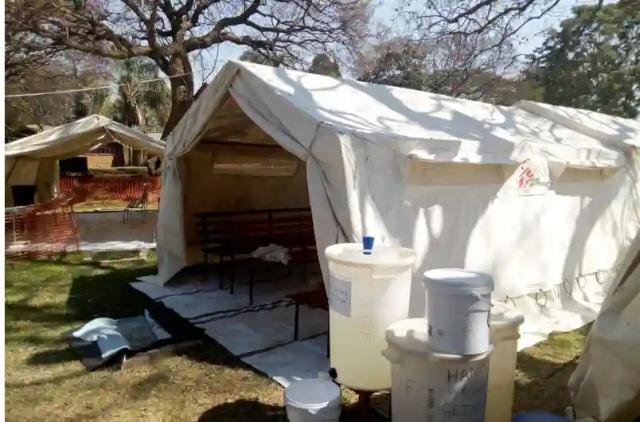
Cholera Spreading Fast In Zimbabwe

Zimbabwe has recorded 4 500 cholera cases since February, with almost 100 deaths being reported during the period.
In response, the Government has restricted some gatherings, banned cooking at funerals in hotspot areas, and activated diarrhoea surveillance countrywide.
The Harare City Council on Monday said cholera cases had been recorded in five suburbs.
It said three of the five known cases were linked to people who had recently visited Buhera District, which is a cholera hotspot in Manicaland Province.
Harare, which has a population of almost two million people, has gone for days without running water amid fears that cholera could spread fast in the city.
Speaking during a post-Cabinet media briefing on Wednesday, Information Minister Jenfan Muswere said part of the reason behind the cholera outbreak in Harare was the contamination of the city’s main water sources, Lake Chivero and the Manyame Dam. He said:
The committee [Civil Protection Unit] found out the main challenges affecting the City of Harare are as follows: heavy pollution of water supply dams [Chivero and Manyame] leading to excessive use of water treatment chemicals, aged units constantly breaking down, aged water supply infrastructure leading to a reduction in treatment capacity and high water losses, and failure by the City of Harare to pay for water treatment chemicals to meet the current treatment capacity of 520 megalitres per day.
According to a report, Cholera is now present in 41 districts across the country’s 10 provinces.
The Ministry of Health and Childcare said as of 3 October, there were 904 laboratory-confirmed cases and 74 hospitalisations with a national recovery rate of 97%.
The cholera outbreak had now spread to more than the 17 traditional cholera hotspot districts of Buhera, Chegutu, Chikomba, Chimanimani, Chipinge, Chitungwiza, Chiredzi, Harare, Gokwe North, Marondera, Mazowe, Shamva, Mutare, Murehwa, Mwenezi, Seke, and Wedza.
More: Pindula News
Tags






